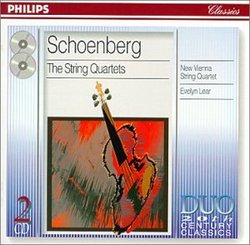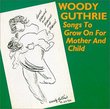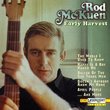| All Artists: Arnold Schoenberg, Evelyn Lear, New Vienna String Quartet Title: Schoenberg: The String Quartets Members Wishing: 2 Total Copies: 0 Label: Philips Release Date: 1/11/2000 Genre: Classical Styles: Chamber Music, Historical Periods, Classical (c.1770-1830) Number of Discs: 2 SwapaCD Credits: 2 UPC: 028946404621 |
Search - Arnold Schoenberg, Evelyn Lear, New Vienna String Quartet :: Schoenberg: The String Quartets
 | Arnold Schoenberg, Evelyn Lear, New Vienna String Quartet Schoenberg: The String Quartets Genre: Classical
|
Larger Image |
CD DetailsSimilarly Requested CDs |
CD ReviewsSchoenberg .... "mit Schlag" T. Beers | Arlington, Virginia United States | 04/19/2002 (4 out of 5 stars) "If you order coffee in an Austrian coffee house and say "mit Schlag," you get a lovely dollop of whipped cream tossed on top. Very Viennese! These ripely romantic performances of Schoenberg's notoriously difficult string quartets are something like a musical equivalent of strong coffee 'mit Schlag.' By which I mean no disrespect .... after listening to these quartets for some years now, I've come to hear them the same way I hear the Brahms quartets. And Schoenberg would have been very pleased with that development. Janus-like, he always presented two faces to the world: Champion of Tradition and Fearless Modernist. The New Vienna Quartet emphasizes the former and to good and enjoyable effect. On the other hand, there is something to be said for the more precisely played - if more clinical sounding - performances by the Arditti or LaSalle quartets. They both celebrate Schoenberg the Modernist. I suspect most people will prefer these New Vienna performances: they humanize a composer whose music still suffers from the canard that it is more about mathematical manipulation than about feeling and melodic inspiration. Nonsense! Based on any honest musical criteria, the great quartet cycles of the 20th century are those by Bartok, Shostakovich, and Schoenberg, and no one who loves great chamber music can afford to ignore these three cycles. (Or a fourth: American Elliot Carter's masterful five quartets). So you really should make the acquaintance of the Schoenberg quartets. But if Schoenberg still scares you a little (or a lot), just remember to order "mit Schlag!" Given the price of the Philips "Duo" set, you're not risking much in any event." A Revolutionary in Method, a Conservative in Tone Karl Henning | Boston, MA | 07/11/2002 (5 out of 5 stars) "Although Schoenberg developed a revolutionary new method of organizing pitch, what is often overlooked is that serialism is just exactly that: a method of organizing pitch, and not a style per se. A variety of styles can be accomodated by this method. Folks who are a little gun-shy of serialism (or its aesthetic shadow) are sometimes caught up short when they actually listen to Schoenberg's music. For the fact is, all through his journey of exploring how pitch should be organized in a composition, which made him something of a revolutionary, stylistically he was always post-Romantic in temperament - which, ironically, made him something of a dinosaur to serial idealogues in the 1950s, such as Pierre Boulez.In a way which invites comparison to Bartók's six, Schoenberg's four quartets span his career. The striking thing, perhaps, is how unified they are in "voice," despite the composer's epochal adventures in How to Organize Pitch. These pieces are seldom performed by string quartets in the states, and it is difficult to see why, since in many respects, they are no harder on the ears than the Bartók quartets, which enjoy a solid berth in chamber recitals.The first movement of the third quartet plays itself out in a very scherzando vein; it may even strike some as strangely cheerful in activity, considering its acerbic chromaticism.The third movement of the fourth quartet is, simply, beautiful. If anyone wonders if Schoenberg was capable of writing beautiful music, this Largo is quite possibly the strongest case pro.There is a restlessness to the music, it is always surging ... somewhere. So I am not sure that it can be my favorite music in the world; but it is well made, perfectly suited to the medium of the string quartet, and there are often passages of beauty which startle with their strangeness." Gemutlich Schoenberg Christopher Forbes | Brooklyn,, NY | 06/24/2002 (4 out of 5 stars) "Leave it to a Viennese Quartet to make Schoenberg sound like far out Brahms. I grew up on the marvelous Kolisch Quartet's monoaural recordings of these masterworks. While the New Vienna Quartet does not have the authority of the Kolisch (Rudolph Kolisch was Schoenberg's son-in-law) it is an excellent reading of this music, one that brings out the classical aspects of this stunning music. The readings of the two tonal quartets are excellent. The New Vienna gets the marvelous concision and motivic integrety of the d minor quartet...a work that bends the tonal system at least as far as Reger. The 2nd quartet is just as stunning with beautiful singing by Evelyn Lear in the last two movements. The real find in this set is the 3rd quartet. I have often found this piece to be the most antiseptic of the quartets and have not often found myself drawn to performances. This performance has caused me to reevaluate the piece. It is almost neoclassic in it's form and quite well argued. It almost sounds like Brahms at times, although Brahms in an atonal context. The final quartet is also beautifully played and one of Schoenberg's finest pieces. Though oestensibly atonal, it often sounds centered on d minor. At a twofer price, this CD is a great way to introduce yourself to these seminal 20th century masterworks."
|

 Track Listings (8) - Disc #1
Track Listings (8) - Disc #1

![Seussical [2000 Original Broadway Cast]](https://nationalbookswap.com/cd//m/02/4802/514802.jpg)